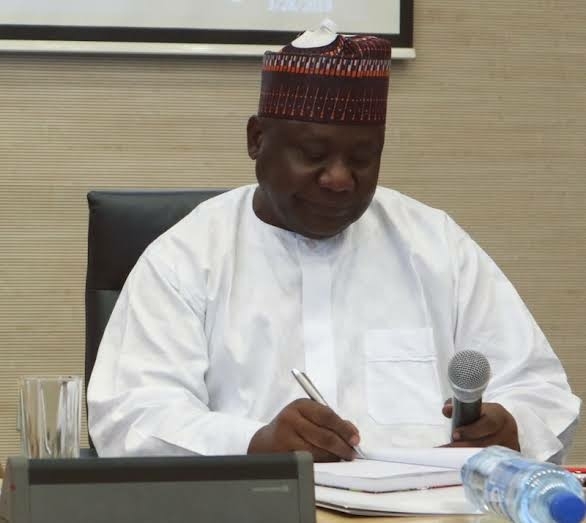Sadiya Umar-Faruq, Minister of Humanitarian Affairs, Disaster Management, and Social Development, announced the development of a risk mapping and assessment tool as part of the federal government’s national disaster risk reduction (DRR) strategy.
She spoke on Wednesday in Abuja at the Bureau of Public Reforms’ monthly seminar, titled ‘Humanitarian policies as a tool for effective humanitarian responses and disaster management in Nigeria.’
Abubakar Suleiman, Deputy Director, Disaster Management, represented the minister.
She did, however, emphasize the importance of establishing DRR governance structures in states and local government areas, as well as enacting appropriate legislation and plans for effective coordination.
According to Umar-Faruq, the ministry will continue to engage regulatory agencies, professional institutions, and communities in the DRR, as well as promote funding mechanisms and insurance.

The minister also stated that the ministry would facilitate disaster risk reduction training for community first responders and other frontline stakeholders.
“Disaster risk reduction is a multi-disciplinary area that requires strong governance institutions, legislation, plans, funding support to succeed,’’ she said.
She assured that the ministry would continue to be committed to providing long-term solutions and assisting victims of humanitarian crises in rebuilding their lives.
Umar-Faruq identified the lack of a DRR governance structure at the subnational level, as well as a lack of legislation and plans for coordination and regulation, as barriers to effective disaster risk management.
This, she added, was in addition to a lack of community and leadership participation, inadequate funding for disaster risk reduction activities and plans, and a shortage of skilled labor.
She did, however, emphasize that the ministry, as the national coordinator, had addressed the challenges.
Mr Dasuki Arabi, Director General of the Bureau of Public Reforms, stated that the seminar would discuss current global trends in disaster management and what Nigeria could do to participate.
Arabi, who was represented by Ms Mercy Okon, Head, Strategic Innovation and Research, stated that the ministry has done so much to assist victims of natural and man-made disasters since its inception in 2019.
“Over the last two years, the ministry has worked tirelessly through its various departments and agencies to provide relief materials to victims of various disasters, particularly Internally Displaced Persons across the country.”
Arabi stated that the bureau has collaborated with the ministry to ensure the success of various social intervention programs aimed at lifting millions of Nigerians out of poverty.
“The bureau considers issues of citizen engagement to be critical to the achievement of government objectives and goals,” the director general added.
He listed some of the bureau’s activities as “development of the Compendium of Reforms, introduction of reform seminars, and management of legacy issues.”
“In addition, the Public Perception Survey on Reforms, the review and updating of the National Strategy on Public Service Reforms, and the institutionalization of the Federal Government Score Card for ranking MDA Websites.”
Arabi went on to say that the bureau had conducted a number of studies and impact assessments on the Treasury Single Account, Executive Orders, ICT deployment in reforming agencies, and budget reforms, among other things.

















Discussion about this post